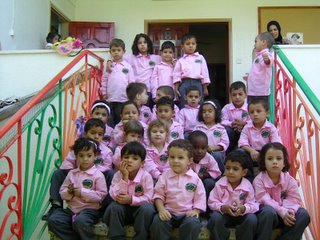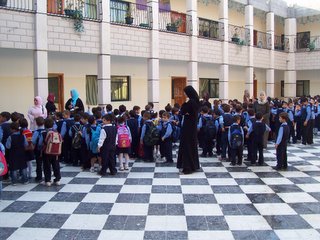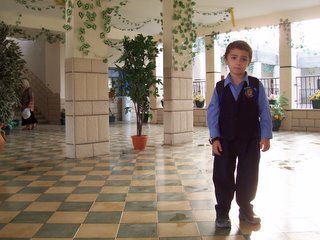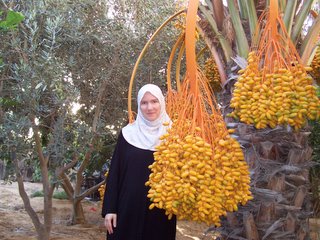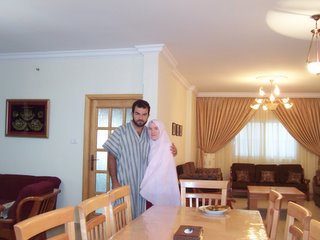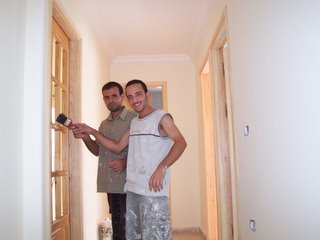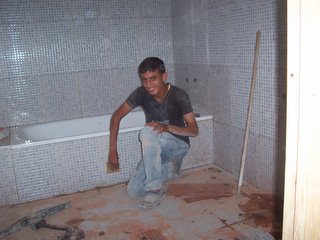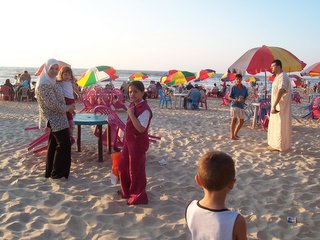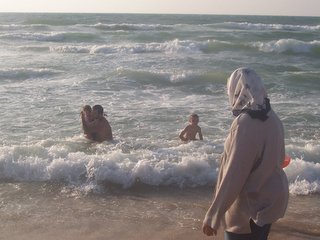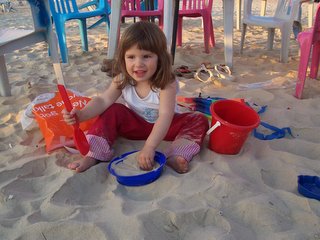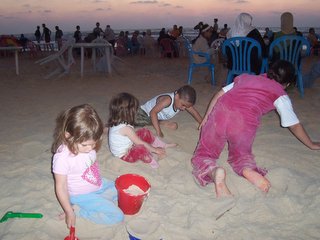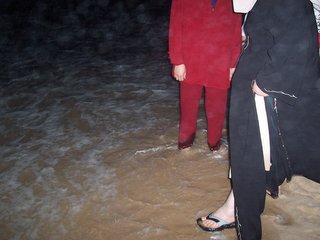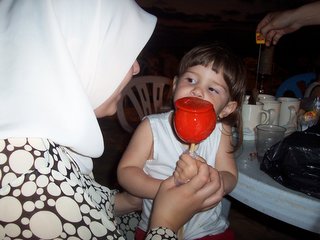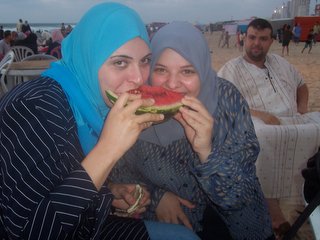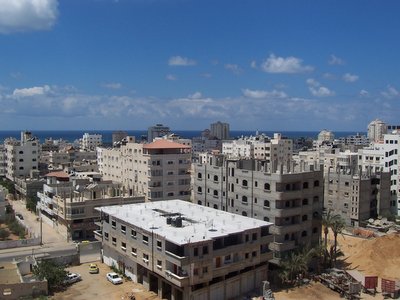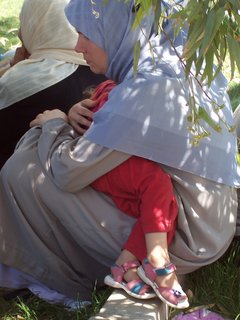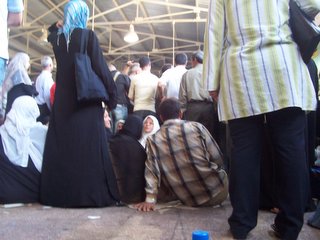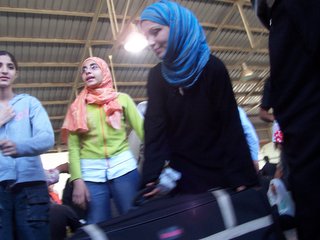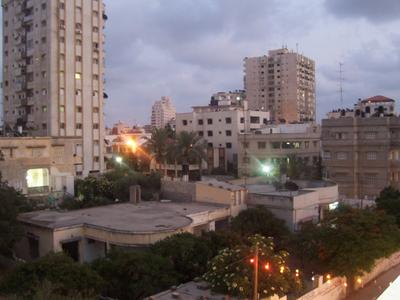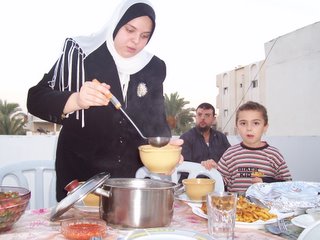
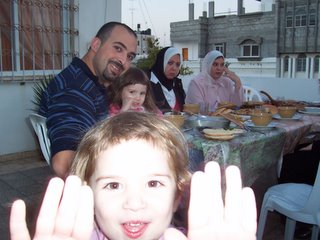
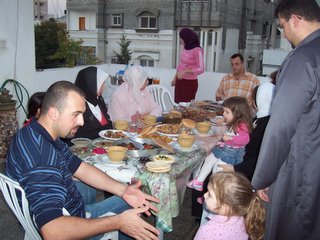
Celebrating the month of Ramadan is of course in some ways similiar to how we celbrate it in Sweden, but also in some ways very different. My experience of Ramadan in Gaza is of course depending on the traditions of my (husband's) family, but over all it seemes there are some general traditions.
In Sweden we invite or are invited for almost every iftar (the meal that breaks the fast), we eat dates and drink, then pray and eat soup and a simple meal. Here the tables are overwelmed by dish after dish. Each person actually get two plates to put food on beside from the soup-plate. At every iftar I'm under severe critic from my relatives beacuse I eat so "little", according to them. I guess swedish stumachs simply are smaller. It also seemes that it is not custom to invite other families for iftar.
In my opinion preparing so much food makes Ramadan all about eating, when it should be all about not eating. Ramadan is the month when you should try to evaluate your life and see what parts you perhaps need to improve, but I found that in general people here are satisfied with the level they're at. Which from one perspective is good - it's not healthy to never feel satisfaction I think, but on the other hand it leeds to stagnation - a stagnation that was one of the first things I noticed and disliked after arriving here. Not to say that I am better - I surely have my fair share of "things to deal with" but at least I'm holding on to the fact that I want to improve.
I join my family before iftar and help them with the preparations. At our table we are eight persons plus my three children. A few minutes before sunset we gather around the table, one of us stands by the window to hear the adhan (call for prayer) that signifies that the sun has set and we can all eat. After the iftar we (read the women) wash the dishes and then we drink arabic coffea and watch a syrian soapopera together.
